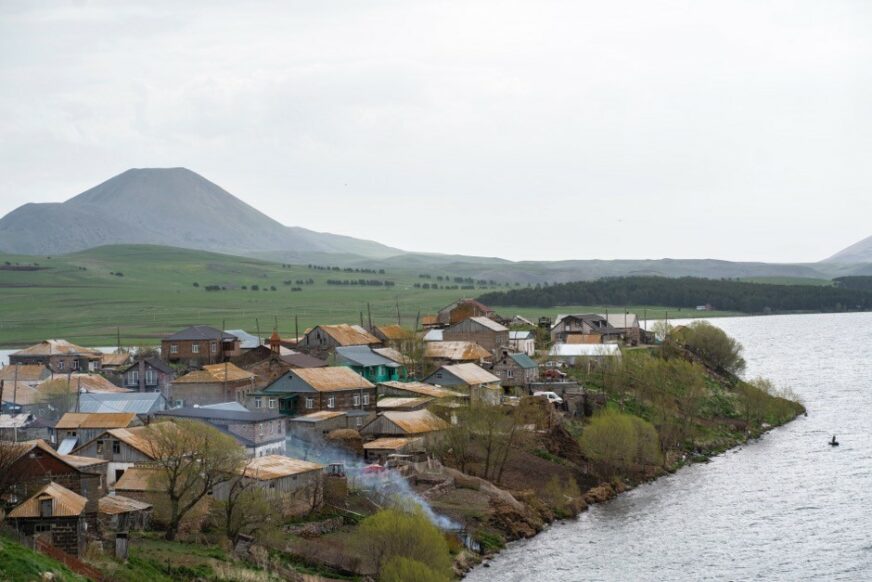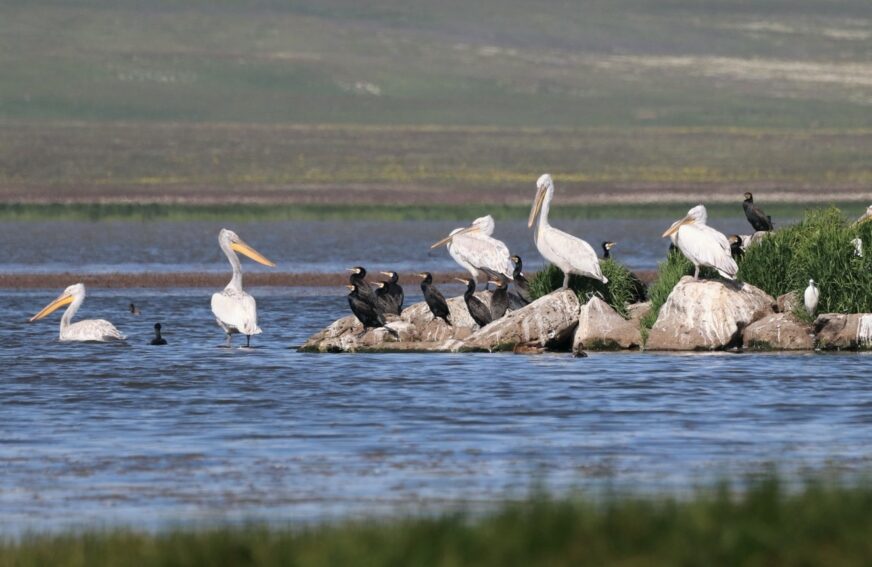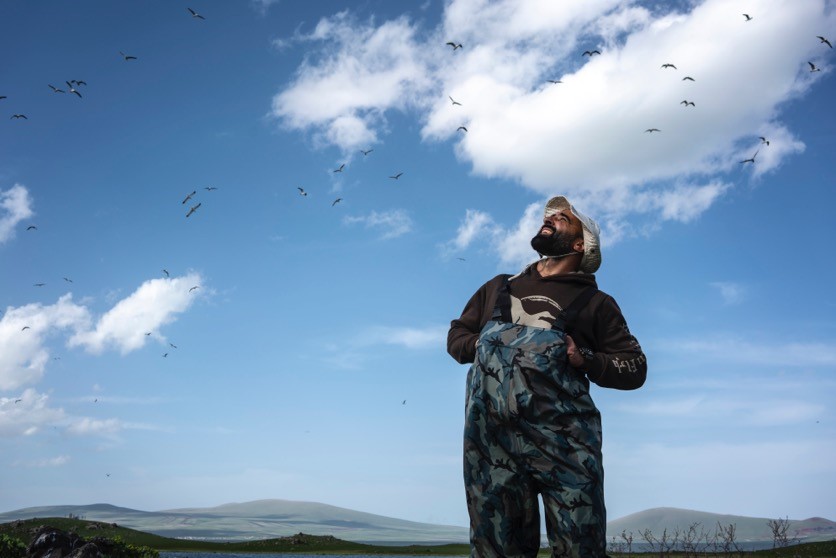
View of Tabatskuri village on the Tabatskuri Lake. Photo credit: Erekle Sologashvili
Protecting nature makes economic sense. According to a 2021 World Bank report, for every dollar invested in protected areas and sustainable tourism, governments can expect a return of at least six dollars.
A prime example is found high in the Samtskhe-Javakheti region of southern Georgia. At 2,000 meters above sea level, this remote area is a wildlife refuge with alpine landscapes, freshwater lakes, and volcanic plateaus. Every spring and autumn, the lakes provide a critical stopover for tens of thousands of birds migrating between Europe, Asia, and Africa. Some of these lakes are part of the Emerald Network, a pan-European ecological effort, established under the Bern Convention to preserve Europe’s biodiversity.
The Bugdasheni, Khanchali, Madatapa, and Tabatskuri Lakes in Georgia’s Javakheti region are designated as Emerald sites due to their role in supporting vulnerable bird species such as the Velvet Scoter, Dalmatian Pelican, Common Pochard, and Eastern Imperial Eagle.
The European Union’s “EU4Environment” Program, a program funded by the EU and implemented in part by the World Bank, supports Armenia, Azerbaijan, Georgia, Republic of Moldova, and Ukraine in expanding protected areas like those in Samtskhe-Javakheti and preserving their natural capital.
The program helps countries improve environmental regulations and ecosystem services, enhance practices in the management of protected areas, and foster community engagement around nature conservation.

Dalmatian Pelicans. Photo credit: Maia Duishvili
Rescued from Extinction
Conservation biologist Nika Paposhvili participated in a remarkable rescue mission at Lake Tabatskuri.
In 2014, conducting a survey on waterfowl, Nika discovered a small population of Velvet Scoters, a marine duck typically found closer to the Arctic circle. Since 2007, the species had been considered extinct in the Caucasus.
“Nobody believed me…that I saw these birds,” Nika remembers. “If you check the distribution of the Velvet Scoter, it includes Scandinavian countries. ”It’s an Arctic bird.”
However, the survival of these birds was precarious. Of approximately 25–30 breeding birds, only six females successfully produced young in 2017. Villagers routinely hunted the birds and collected eggs from their nests. Some became entangled in illegal fishing nets and drowned.
Determined to save the last Velvet Scoters in the Caucasus, Nika spent three summers in Tabatskuri village, home to an ethnic Armenian community in Georgia.
“The purpose was to make friends with the villagers,” he explains. Most locals didn’t speak Georgian, so Nika tried to connect with them by helping with agricultural work—harvesting potatoes and gathering hay.

Nika counting birds. Photo credit: Erekle Sologashvili
Over time, he showed the villagers that the live birds were of much more value to them, as birdwatchers began visiting the area, which helped boost the communities’ livelihoods from eco-tourism.
Since 2020, illegal egg collection and hunting have stopped completely and in 2024, the population of the birds had multiplied sevenfold, with 45 pairs of Velvet Scoters successfully breeding on Lake Tabatskuri. Since 2020, illegal egg collection and hunting have stopped completely.
Balancing Protection with Access
The future of Javakheti’s lakes and other protected areas across Georgia depends on finding a balance between conservation and public access, allowing nature lovers to discover these treasures while ensuring they remain pristine for generations to come.
The region has limited tourist amenities. Samvel Margarian, who runs a guesthouse in the village of Gandzani, recognizes the potential of nature tourism to improve the local economy and hopes to use his earnings to open a small library and even a cinema to revitalize village life.
“I have always loved nature. I often went to the lakes to swim. I want to show the beauty of Javakheti to the world.”
Commitment to Sustainable Growth
The designation of the Javakheti Lakes as Emerald Network sites both acknowledges Georgia’s willingness and creates another incentive to protect these ecosystems. But success ultimately depends on the country’s, including local communities’, commitment to manage and nurture natural assets such as protected areas and ensuring equitable sharing of the benefits with communities and poor households.
Doing so can help bring new economic opportunities and jobs to rural communities—driving economic growth and reducing regional inequalities across Georgia.





